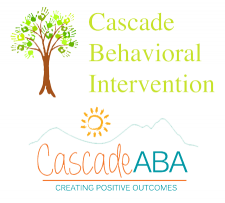Philosophy
CBI is committed to providing evidence-based interventions for children with developmental disabilities. Decades of research support the use of ABA in helping individuals with developmental disabilities, and numerous studies have demonstrated the effectiveness of early intensive behavioral intervention (EIBI) for young children on the autism spectrum. While the outcome of EIBI varies for each child, this type of treatment increases the likelihood that a child will achieve independence in a general education setting.
The following are particular intervention practices utilized:
- Developmentally sequenced and individualized treatment goals using a variety of assessments and curricula rather than a “one size fits all” approach
- Errorless teaching procedures, which allow children to learn difficult skills correctly the first time and receive immediate positive feedback
- Incorporation of play-based instruction (e.g., incidental teaching, promoting spontaneous language in the natural environment, generalization training, etc.)
- A focus on critical repertoires, such as “learning to learn” skills, functional communication, and self-advocacy
- Data-based intervention
- Pairing others with reinforcement (adults and peers)
- Structured peer play, including peer training programs
- When appropriate, collaboration with other professionals, such as school staff other health care providers, to promote generalization of skills and optimal care coordination
In order to maintain the integrity and intensity of intervention, the following practices are utilized:
- Ongoing, competency based staff training and supervision
- Staff supervision that matches the intensity of intervention (approximately 10% of the total intervention hours)
- Frequent data analysis, program modifications, and treatment goal updates to meet individualized learning needs
- Ongoing parent training and involvement
Evidence-Based Intervention
While early intensive ABA has been shown to help many children achieve accelerated learning, intervention for school age children through adults has also been demonstrated to help build important skills. Intervention is provided in an individualized manner to meet each client’s unique adaptive, social, academic and behavioral needs. Intervention utilizes many of the strategies listed above and is grounded in evidence-based behavior analytic practices.
Given that the field of applied behavior analysis is constantly evolving through ongoing research, it is vital that behavior analysts are aware of current developments in the field. Through continuing education, membership in professional associations, collaboration with colleagues, and review of current literature, we at CBI strive to remain abreast of advancements in the field of Applied Behavior Analysis to provide the most effective intervention possible to our clients.
